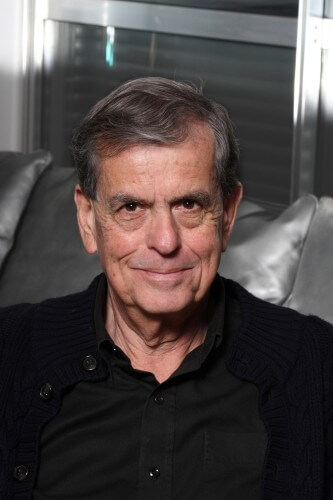In response to the science website's question about the connection between the discoveries, Prof. Chachanover said: "The system discovered by Ohsumi is extremely important, unlike our system, it is activated mainly under stress conditions and allows the cell, through self-digestion, to provide itself with the essential ingredients to maintain its basic functions."

Yoshinori Ohsumi, he's a good friend, and I'm glad he won. This is what the winner of the Nobel Prize in Chemistry for 2004, Aharon Chachanover, says, that the Nobel Prize committee mentioned the prize he won together with Irwin Rose as a step on the way to Ohsumi's winning in response to the science site's question about his reaction to the winning.
"The system that Ohsumi discovered is extremely important, unlike our system, it is activated mainly under stress conditions and allows the cell, through self-digestion, to provide itself with the essential ingredients to maintain its basic functions. Its basic mechanism uses a ubiquitin-like protein, so to a large extent, the discovery of the ubiquitin system paved the way for him, without at all detracting from his elegant work that mainly used genetic tools and which is of great importance for disease mechanisms and drug development. "
"This award closes a circle of four Nobel prizes in the field of "destruction" and points to the importance of destruction as part of life. The first was given to Christian de Dive in 1975 for the discovery of the lysosome, the second in 2002 for the discovery of the programmed cell killing process - apoptosis (Lahorwitz, Selston and Brenner), the third in 2004 for the discovery of ubiquitin, and the fourth now, to Ohsumi, for the discovery of the mechanisms of autophagy .” Prof. Chechenover concludes.
It turns out that the field of autophagy was not always as fruitful as it is today. In the traditional telephone conversation with the winners held by members of the Nobel Committee at the press conference on the announcement, Ohsumi said that he was surprised to hear that he was the only winner. "It was a surprise for me because many of my colleagues work in the field of autophagy today.
To which the head of the committee responded: "True, because this is a rare case in which the Nobel Prize for Medicine or Physiology is given to only a single winner."
And Usuhomi replies: Yes, the field is developing rapidly, although when I started my work, more or less one article appeared once every twenty years on the field of autophagy. Now there are over 5,000. It's a real change that happened in about 15 years, although I started researching it over 27 years ago. It was lucky, indeed yeast is a good system and autophagy was a good subject to work on, but it still has unsolved questions. Even now there are more questions in the field than there were when I started."
"It is surprising to see that so much can be achieved from working with yeast, isn't it surprising that there is a great similarity between the yeast and us?" asked the head of the committee, and Usuhami answered: "I believe that there are basic functions of the cells that should be preserved from yeast to mammals. Of course, the vacuole is different from the lysosome, but I estimated that many mechanisms had to be preserved, this was the working assumption when I started the research."
Winner of the 2016 Nobel Prize in Medicine: discovers the mechanism of cell recycling in the body
